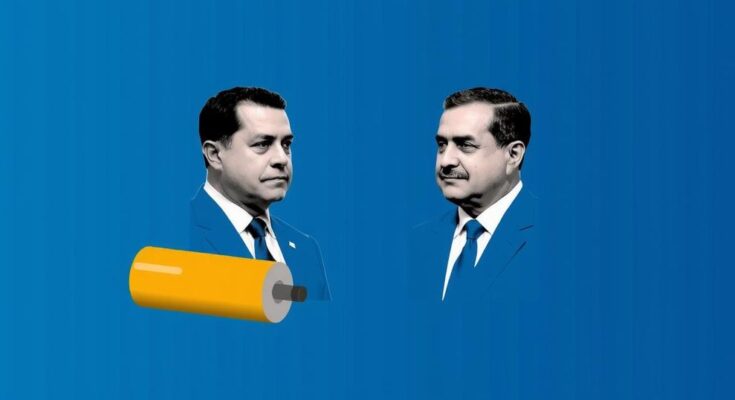The U.S. has sanctioned 21 more Maduro allies for repressing citizens after Venezuela’s disputed election. This follows the Biden administration’s recognition of opposition leader Edmundo González as president-elect. While sanctions aimed at high-ranking officials may exert pressure on the Maduro government, it continues to maintain power. Moreover, Venezuelan lawmakers are considering a bill labeling economic sanctions as crimes against humanity.
The United States has recently enacted sanctions against 21 affiliates of Venezuelan President Nicolás Maduro, citing allegations of repression following the contentious presidential election. These sanctions, issued by the U.S. Department of the Treasury, target numerous high-ranking officials, including the head of the national corrections agency and a prominent intelligence director. This move follows the Biden administration’s recognition of opposition figure Edmundo González as the legitimate “president-elect” of Venezuela, amid ongoing accusations of electoral fraud. González has sought refuge in Spain after facing an arrest warrant due to allegations surrounding the manipulation of vote counts. In a broader context, similar sanctions had been imposed previously against 16 of Maduro’s allies. Despite these measures, the Maduro government retains control over the country. The Venezuelan parliament is currently deliberating legislation aimed at classifying economic sanctions as a crime against humanity, which may further complicate international relations.
This article addresses the recent sanctions imposed by the United States on Venezuelan officials following a disputed presidential election that saw President Nicolás Maduro claim victory amid widespread allegations of electoral fraud. The political climate in Venezuela remains tense, with opposition figures like Edmundo González highlighting claims of human rights violations and repression. Understanding the dynamics at play requires an examination of the Maduro regime’s actions and the growing international response to human rights concerns in Venezuela, particularly from the United States, which continues to leverage sanctions as a method of pressure against the current government.
In summary, the U.S. has intensified its sanctions against individuals associated with President Maduro, seeking to address the repression of dissent following the disputed election. The Biden administration’s recognition of Edmundo González as Venezuela’s “president-elect” further underscores the opposition’s claims against Maduro’s legitimacy. Despite these sanctions, the Maduro administration remains in power, complicating the prospect for democratic reforms in Venezuela and highlighting the ongoing tension between the government and international actors, particularly in light of proposed domestic legislation that could criminalize the imposition of economic sanctions.
Original Source: www.foxnews.com




